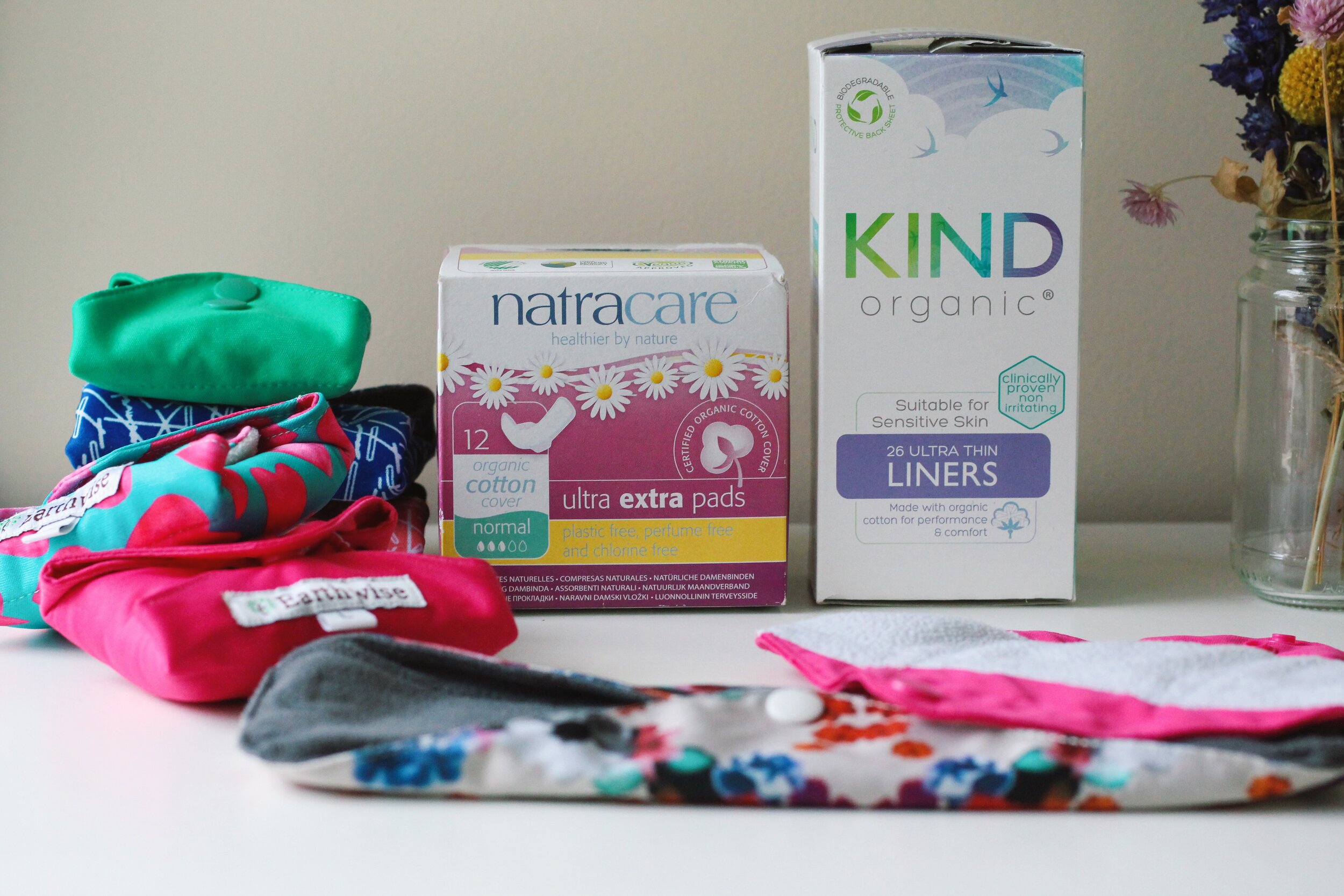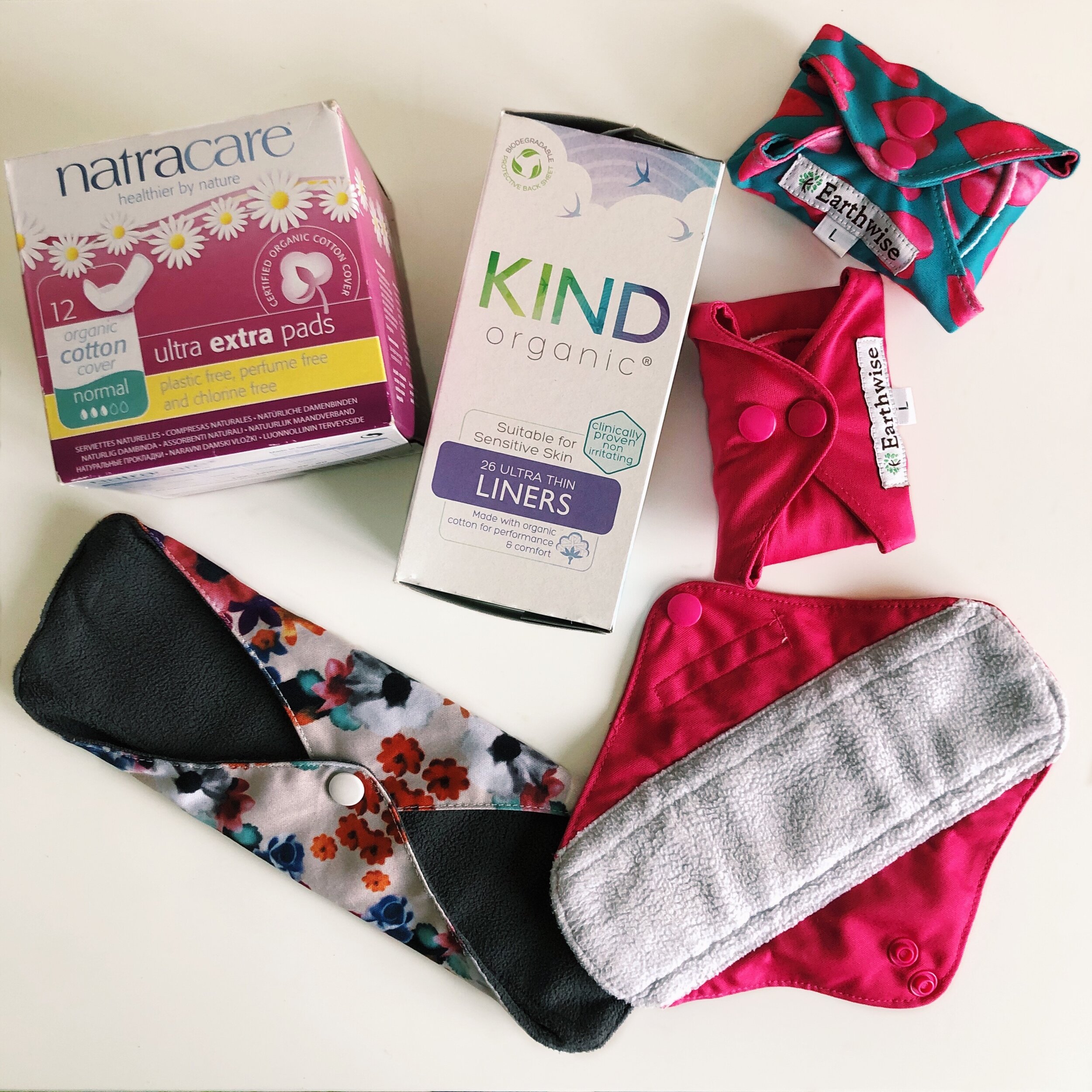Planet Friendly Periods
Far too many items in our everyday life contain plastic, chemicals or unnecessary ingredients. Sanitary items are something a person will use on a regular basis and by changing one type of product you use each month, period product or not, it can have an incredible change on the planet. The impact menstrual waste has on pollution is staggering. Not so long ago you probably wouldn’t catch me talking so publicly about this, but I’m hoping by talking openly about this, we can get rid of the stigma around periods, and help our environment by reducing waste all at the same time (doesn’t that sound amazing?).
“Each one of us is estimated to have approximately 500 periods during our lifetime. That’s 6,5 years we spend menstruating and using an average of 11,000 disposable period products, many of which end up in landfills or worse – in our oceans.”
This statistic alone is absolutely shocking, if you want to make a positive change every month then keep reading…
Reusables can save you money:
Whilst at first it can seem like an expensive change to make, menstrual cups and washable cloth pads with good care can be used for years making it a cost effective investment in the long run. Comparatively, how many packs of plastic pads would a person buy in a year, imagine that in a landfill, and the total cost. These alternatives don’t contain any perfumes or chemicals, things that you really don’t want to be using in such close proximity to your body.
I personally haven’t used a menstrual cup but those I know who have used one swear by them! You might also be thinking how can it be convenient to use a reusable pad? Since making the change, I can honestly tell you they are by far more absorbent than disposables, meaning you don’t have to change them as frequently - how great is this! Even two years since making this swap it blows my mind that I would ever have used anything different.
How could I almost forget, period underwear is now becoming more available too. I’ve not tried this but have heard pretty great things, this might be a route to explore if you’re not keen on the other options, or want extra protection with a cup.
Another bonus, does anyone else have memories/currently have the issue of pads making that awful embarrassing plastic rustling noise when you move… well, fear no more with cloth pads! Made of lovely soft fabric which makes them more comfortable and discreet to wear.
Care and how to use:
Looking after your pads is really quite easy when you’ve got into a routine. Cloth pads wrap around your underwear just like a sticky disposable one, but have a popper to hold it in place. They come in a wide range of sizes, from small pantyliner, small, medium, large, maternity, and options with or without PUL. Once used, rinse under cold water, then pop in the washing machine with the rest of your laundry, but don’t tumble dry (unless you desperately need to). It’s important to always use cold water and not hot/warm, as the cold water helps to remove stains so when a pad is especially dirty you can leave it soaking in cold water, and I’ve seen many people advise adding salt to the water to prevent staining. If you don’t have access to a washing machine or you’re out and about just pop them into a wet bag, zip it up and put in the wash when you get home. Same applies if you’re travelling or don’t have access to wash them you can store them in your wet bag.
Perfectly designed…
Most of the reusable pads will have a little popper that you use to secure the pad in place (as mentioned above). This also creates a nifty way to fold away your dirty or clean cloth pads! Such a easy way of keeping them safe and discreet in your bag on the go or if you’re anything like me, nice and neat in the bathroom cupboard.
Menstrual cups are used in a similar way to tampons, remember to clean hands before and after use, and to clean it after use put it in a pan of water and boil for 5-10 mins. (As explained, I’ve not got one myself so make sure you check the pack instructions or speak to someone who has used one for advice. There is also a tonne of useful information and guides online.)
What if reusables don’t work for you?
If you don’t want to, or aren’t able to make the jump to a reusable product, for whatever reason that may be, then perhaps try looking out for plastic free, single use pads/tampons. There’s a few brands appearing around such as Flo, NatraCare, Kind, Ohne and possibly others I’m not aware of. Whilst they are a disposable item you aren’t using plastic and they will use healthier organic materials, and be free from all those bad chemicals and perfumes.
Can you challenge yourself to do something green and use an earth friendly sanitary item this month? I’m always happy to answer any questions if you want to reach out for advice on reusable alternatives.




